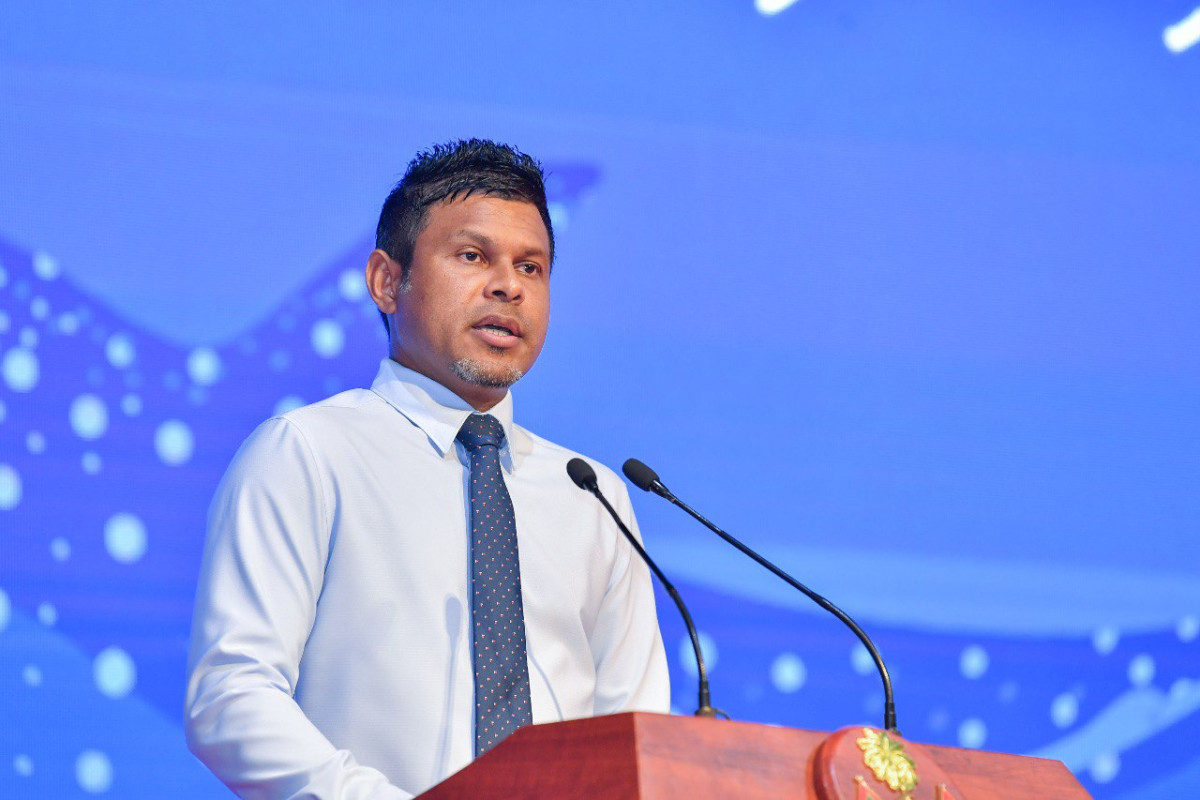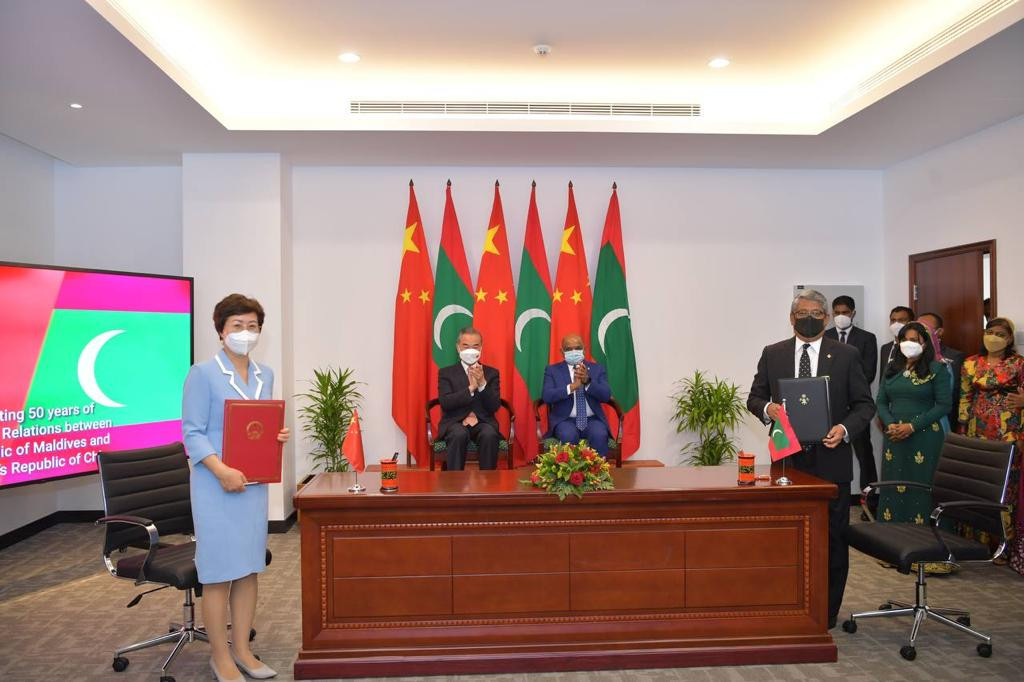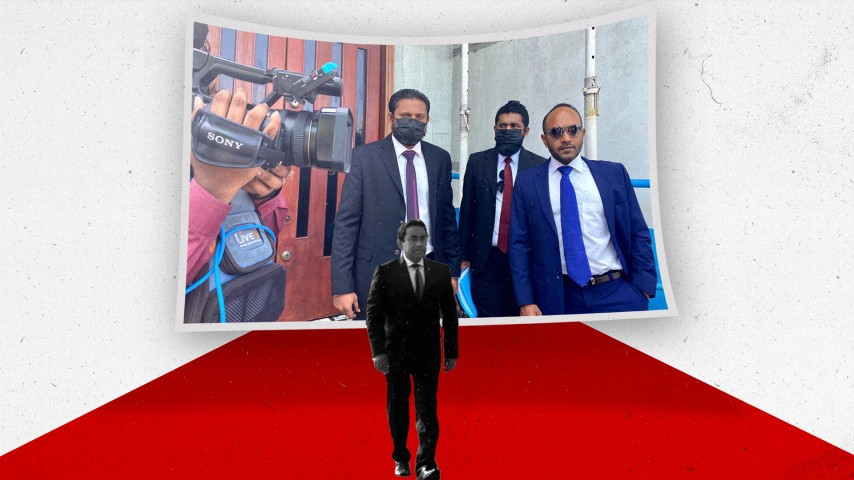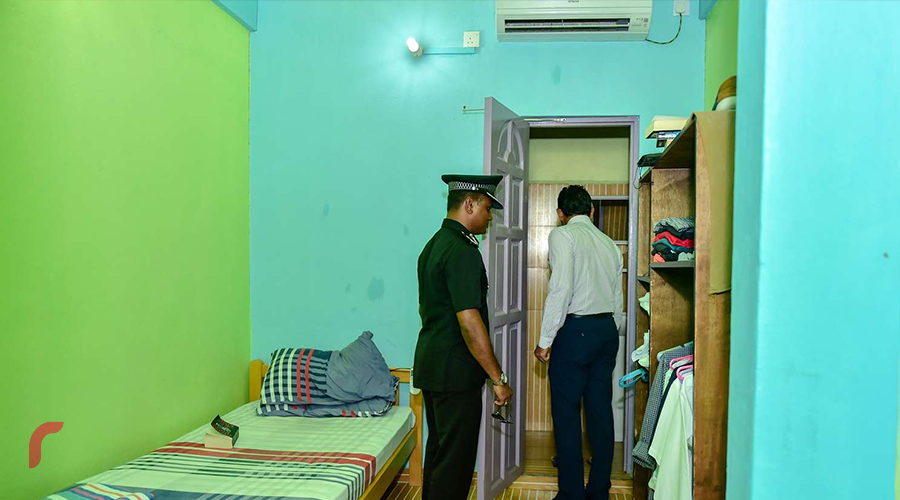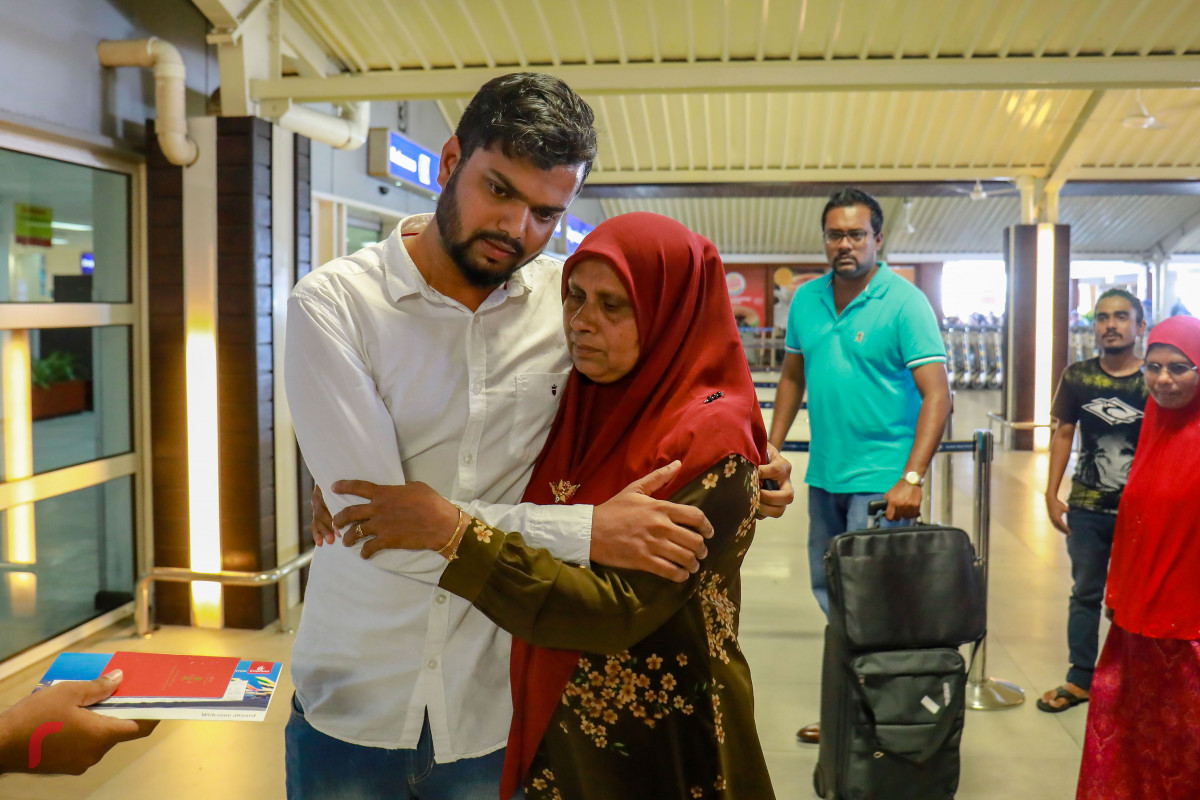Opportunity for two presidential terms needed to deliver complete progress: Mabrook
Mabrook said that a decision would be made on whether President Solih would pursue a second term within the year

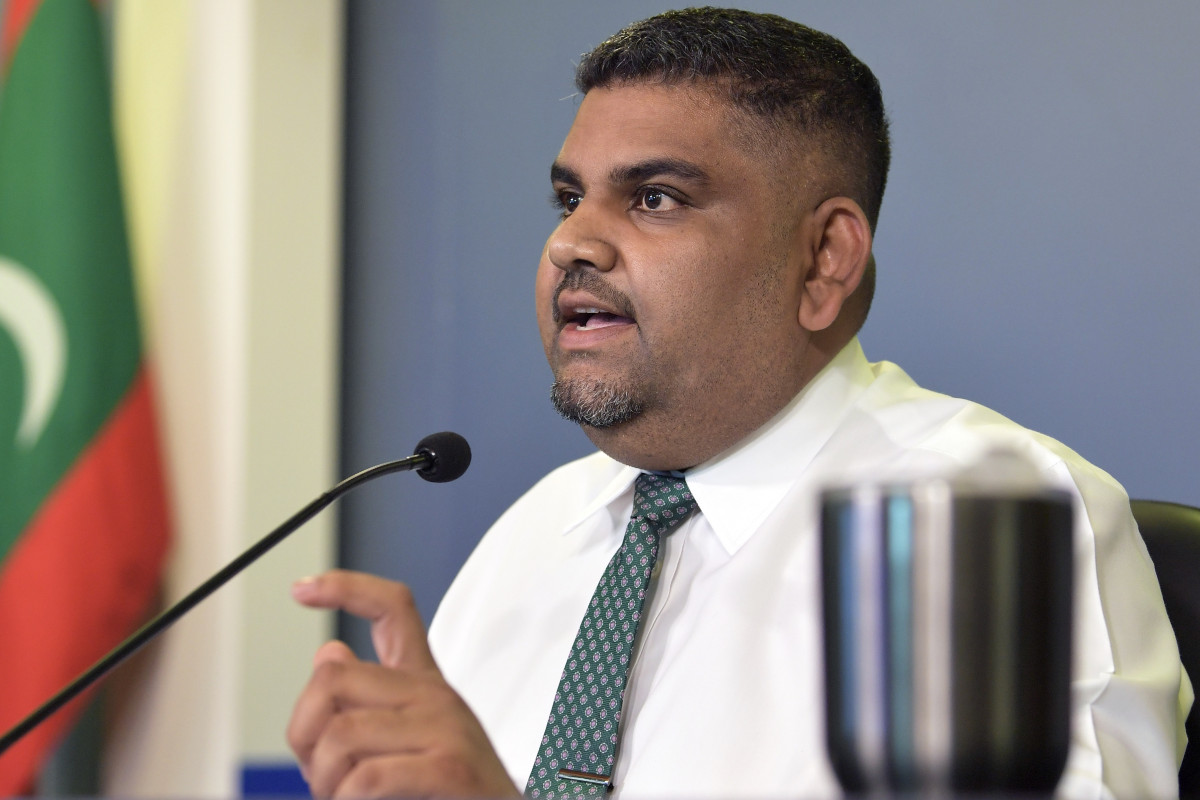
Mabrook made an appearance on RaajjeTV\'s \"Fashaairu\" programme on Tuesday morning
Spokesperson for the President's Office Mabrook Azeez has said that an opportunity for two presidential terms need to be given in order for an administration to deliver progress.
Spokesperson Mabrook made an appearance on Raajje TV's "Fashaairu" programme on Tuesday, where he relayed to viewers stories both personal and relating to his political career. Alluding to his defeat in the most recent parliamentary elections, Mabrook said that his unwavering determination to serving the nation was one of the reasons people now accepted him and his work. Mabrook noted that he had received a lot of support for his previous role as Spokesperson for the Health Emergency Operations Center (HEOC) and said that he would continue to work in a capacity to deliver work of the President's Office to the press and public as the Office's Spokesperson at this time.
Mabrook went on to provide some insight into the current system of governance in the Maldives, detailing personal political opinions on its effectivity. He noted that as things stand, development efforts were slowed down or waylaid quite a bit as no President in the nation's modern democracy had been able to serve two consecutive terms, and one term of five years was an ineffectively short period of time to bring about and complete sustainable development across the nation.
Likening the current difficulties faced in the Maldives to those in America, Mabrook drew a parallel to his argument from the two consecutive terms served by the 44th President of the United States, Barrack Obama. Mabrook said that while Obama's first term ended with him as the target of heavy criticism for seemingly failing to have brought about substantive change, he had been hailed as a revolutionary by the end of his second term once he had been given the time and space to realize his vision for the presidency. Mabrook wsent on to affirm that an opportunity to serve two consecutive terms needed to be given in order for a an administration to deliver complete and sustainable development to the Maldives.
When asked about whether or not incumbent President Ibrahim Mohamed Solih would be pursuing a second term, Mabrook said that the answer to that question would be made evident with how the year progresses. However, Mabrook expressed enthusiasm at the prospect of working on a potential re-election campaign for President Solih.
Further highlighting on his experience working with President Solih, Mabrook said that the president was someone who held plans for the distant future, and that he actively sought advise and recommendations from those around him. Referring to the fear that wept through the nation with Covid-19, Mabrook added that President Solih had portrayed a veteran calm and continued to work with other professionals and leaders even in a time of such distress.
Mabrook also confirmed that he would support campaign efforts for any Maldivian Democratic Party (MDP) who contests.
At his appearance on Raajje TV's "Fashaairu" programme, Mabrook went on to reveal some of his personal political opinions regarding the current state of affairs in the Maldives. While acknowledging that many were considering changing the nation's governance system altogether, Mabrook declared that there were more pressing issues to be addressed at this time rather than undertaking such a big change.
Mabrook detailed that instead of deciding whether or not to proceed with a parliamentary or presidential system of government, it was more critical now to establish a system that allowed the smooth and uninterrupted transition of power at the end of presidential terms so that development projects could proceed unhalted. He added that the way constituencies were distributed needed to be revised, in addition highlighting the need to broaden the role of members of the parliament in order to further strengthen existing systems.

